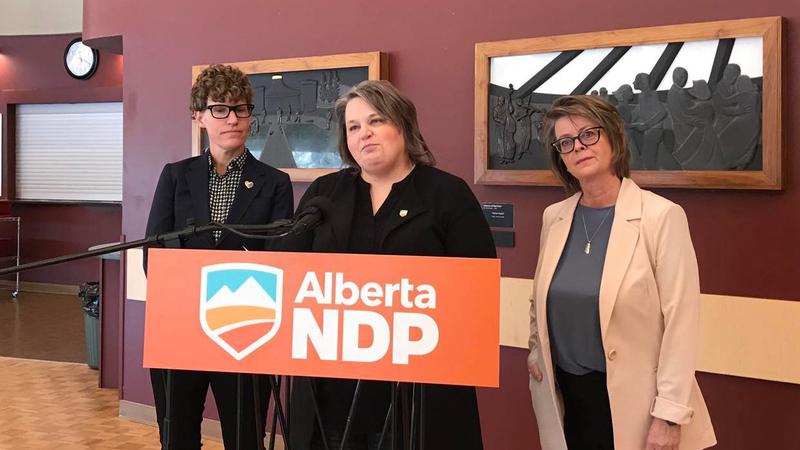
Alberta NDP reconfirms committment in Red Deer for free prescription contraception
Members of the Alberta NDP visited Red Deer on Thursday to reconfirm their commitment to offering universal access for free prescription contraception across the province, should they form government in May.
Candidates Jaelene Tweedle for Red Deer-North, Michelle Baer for Red Deer-South and Critic for Women’s Issues Janis Irwin shared the message at a press conference held at the Golden Circle (4620 47a Ave).
“Universal coverage for prescription contraception will save Albertans money and help them to fully participate in our economy, and every aspect of our society,” said Irwin. “This policy will ensure that more Albertans are in control of their own lives and their own economic future.”
The NDP says universal access would cost the government around $34 million annually to cover oral hormone pills, contraceptive injections, copper and hormonal intrauterine devices (IUD), subdermal implants, and Plan B.


